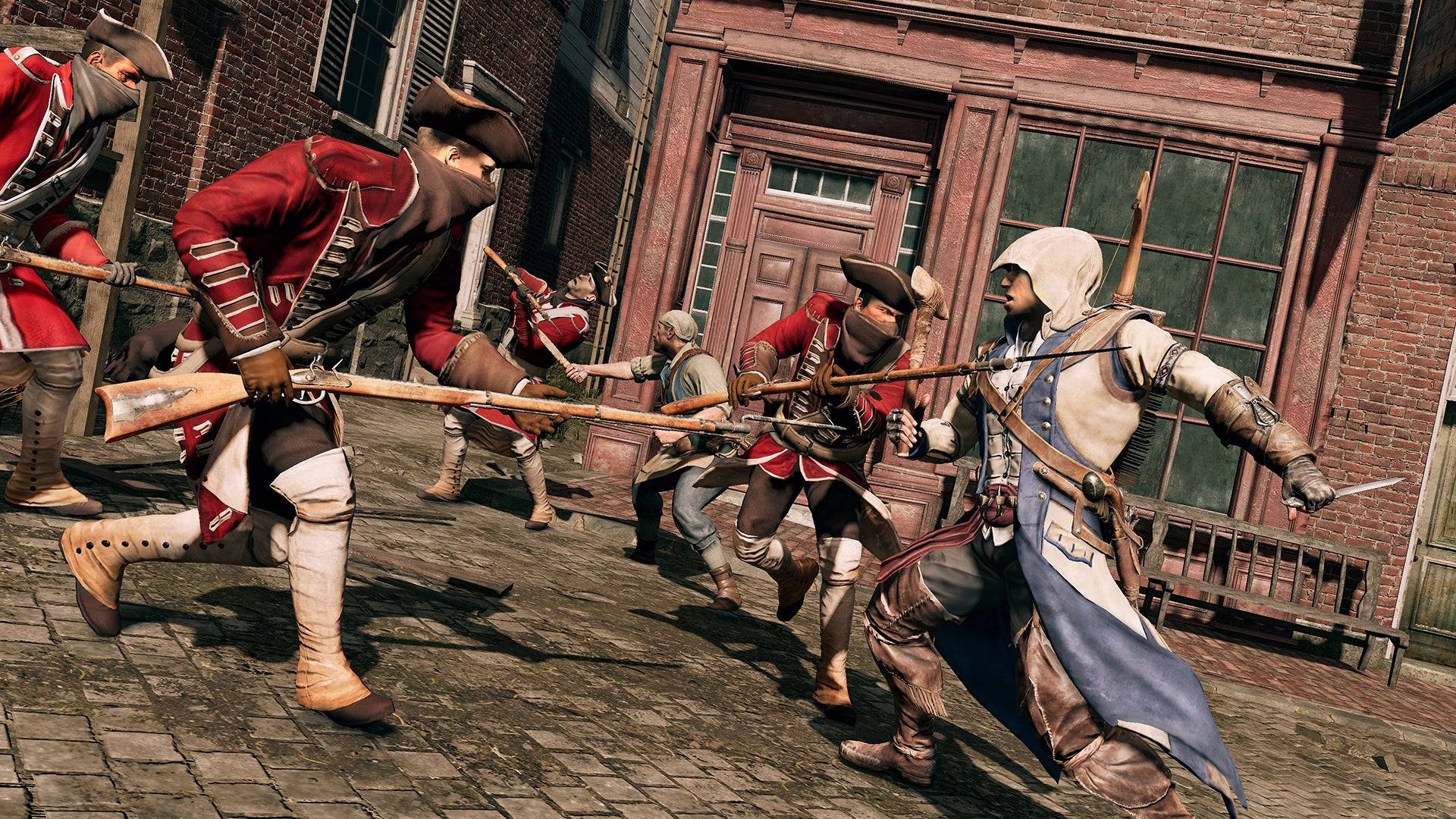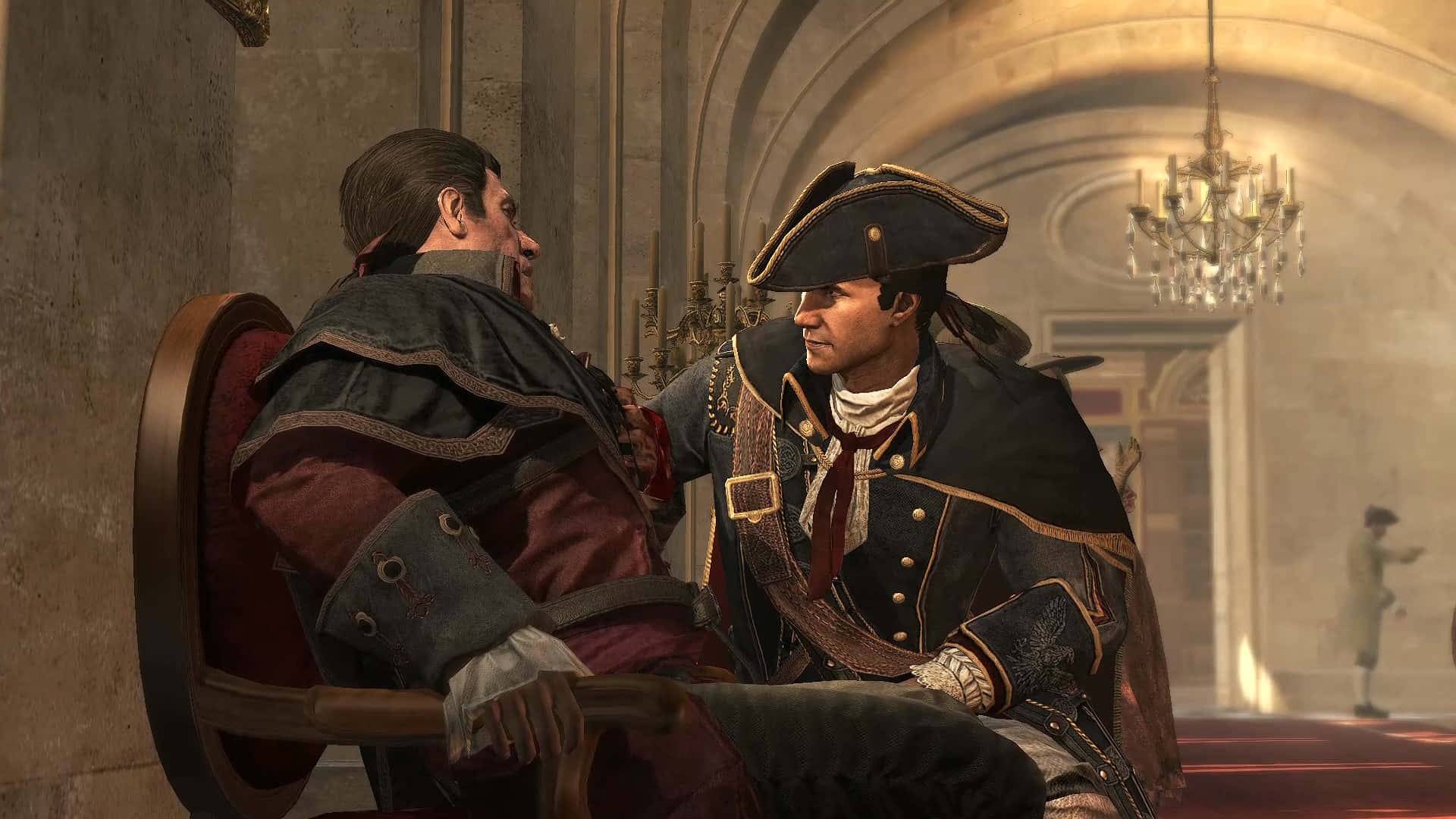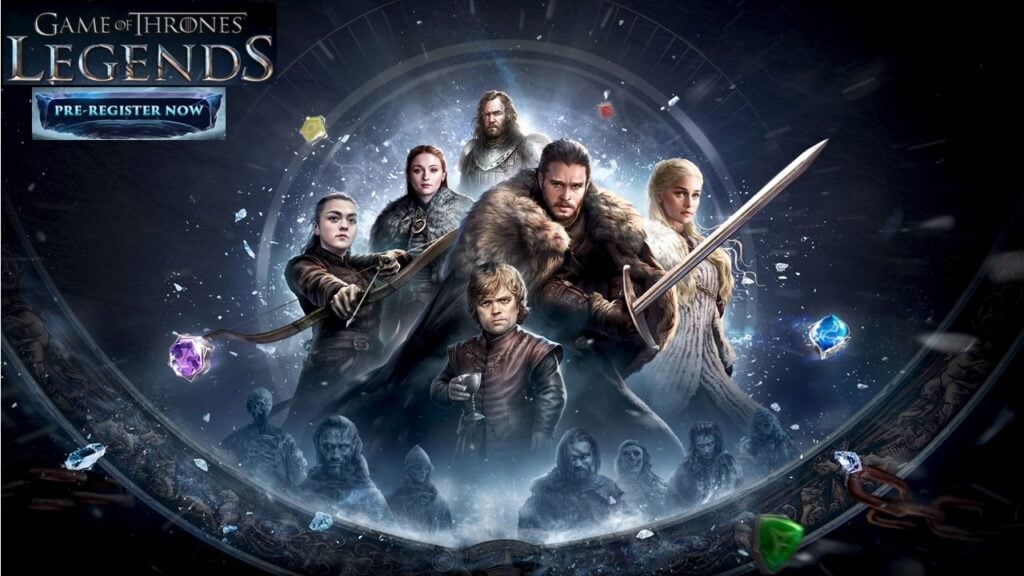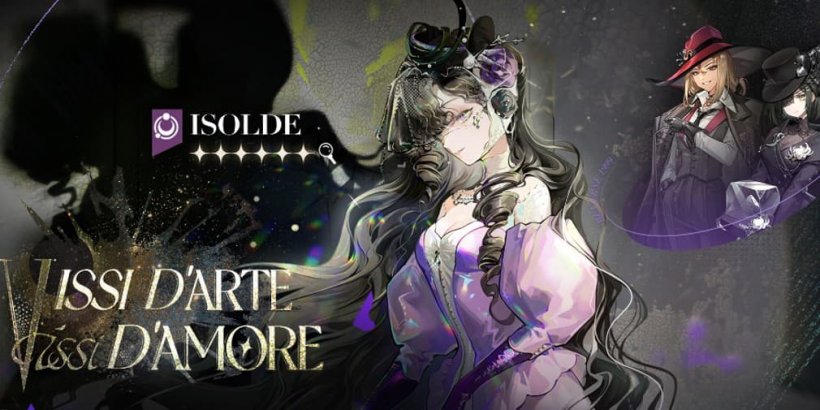Why Assassin's Creed 2 and 3 Had the Best Writing the Series Has Ever Seen
- By Noah
- Mar 28,2025
One of the most memorable moments in the entire Assassin’s Creed series unfolds near the start of Assassin’s Creed 3, as Haytham Kenway completes his mission to assemble a team of supposed assassins in the New World. Initially, players are led to believe these are allies, as Haytham wields a hidden blade and exudes the same charisma as the beloved Ezio Auditore. Throughout the early campaign, Haytham embodies the role of a hero, liberating Native Americans from imprisonment and confronting arrogant British redcoats. The twist comes when he utters the iconic phrase, "May the Father of Understanding guide us," revealing that we have been following the Templars, the sworn enemies of the Assassins.
This surprising narrative twist epitomizes the full potential of Assassin’s Creed. The original game introduced a compelling premise—hunt, understand, and eliminate your targets—but it lacked depth in its storytelling, with both protagonist Altaïr and his targets lacking personality. Assassin’s Creed 2 improved this by introducing the iconic Ezio, yet it failed to give the same attention to his adversaries, notably the underdeveloped Cesare Borgia in Assassin’s Creed: Brotherhood. It was not until Assassin’s Creed 3, set during the American Revolution, that Ubisoft truly fleshed out both the hunted and the hunter, creating a seamless narrative flow from setup to payoff. This balance between gameplay and story remains unmatched in subsequent entries.

Despite the positive reception of the series' current RPG era, there's a consensus among players and critics that Assassin’s Creed is in decline. Debates rage over the causes, from the increasingly fantastical elements like battling gods such as Anubis and Fenrir, to the introduction of romance options and the controversial choice of a historical figure, Yasuke, as a protagonist in Assassin’s Creed Shadows. However, I believe the true reason for this decline is the shift away from character-driven storytelling, which has been overshadowed by the expansive sandbox worlds of recent titles.
Over time, Assassin’s Creed has evolved its original action-adventure formula by incorporating RPG and live service elements like dialogue trees, XP-based leveling systems, loot boxes, microtransactions, and gear customization. Yet, as the games have grown larger, they have started to feel emptier, not just in terms of repetitive side missions but also in their narrative depth.
For instance, while Assassin’s Creed Odyssey boasts more content than Assassin’s Creed 2, much of it feels superficial and underdeveloped. Although allowing player choice should theoretically enhance immersion, in reality, it often dilutes the narrative. Longer scripts to accommodate multiple scenarios can lack the polish of more focused, screenplay-like narratives from earlier games. The original action-adventure era featured well-defined characters, unlike the newer games where protagonists must adapt to the player's whims, often compromising their depth.
As a result, while Assassin’s Creed Odyssey may have more content, it often feels less engaging, breaking immersion with characters that seem more like computer-generated entities than complex historical figures. In contrast, the Xbox 360/PS3 era produced some of the finest writing in gaming, from Ezio’s passionate "Do not follow me, or anyone else!" speech after defeating Savonarola, to Haytham Kenway's poignant soliloquy upon his death at the hands of his son, Connor:
*“Don't think I have any intention of caressing your cheek and saying I was wrong. I will not weep and wonder what might have been. I'm sure you understand. Still, I'm proud of you in a way. You have shown great conviction. Strength. Courage. All noble qualities. I should have killed you long ago.”*

The narrative quality has also declined in other ways. While newer games adhere to a simplistic good-versus-evil dichotomy—Assassins as the heroes and Templars as the villains—the earlier games explored the blurred lines between the two factions. In Assassin’s Creed 3, each Templar's final words challenge Connor and the player to question their beliefs. William Johnson suggests the Templars could have prevented the Native American genocide, Thomas Hickey criticizes the Assassins' idealism, and Benjamin Church introduces the idea of perspective, portraying the British as victims. Haytham even undermines Connor's trust in George Washington, asserting that the new nation would be as tyrannical as the monarchy it replaced—a claim validated when it's revealed Washington, not Charles Lee, ordered the burning of Connor's village. By the game's end, players are left with more questions than answers, enhancing the narrative's impact.
Reflecting on the franchise's history, it's clear why the track "Ezio’s Family" from the Assassin’s Creed 2 soundtrack became the series' theme. The PS3-era games, particularly Assassin’s Creed 2 and Assassin’s Creed 3, were fundamentally character-driven, with "Ezio’s Family" evoking not just the Renaissance setting but Ezio's personal loss. While I appreciate the expansive worldbuilding and graphical advancements of the current Assassin’s Creed titles, I hope the franchise will one day return to its roots, delivering the focused, character-driven stories that originally captivated fans. However, in today's market, dominated by sprawling sandboxes and live service ambitions, such a return might not align with "good business" practices.






